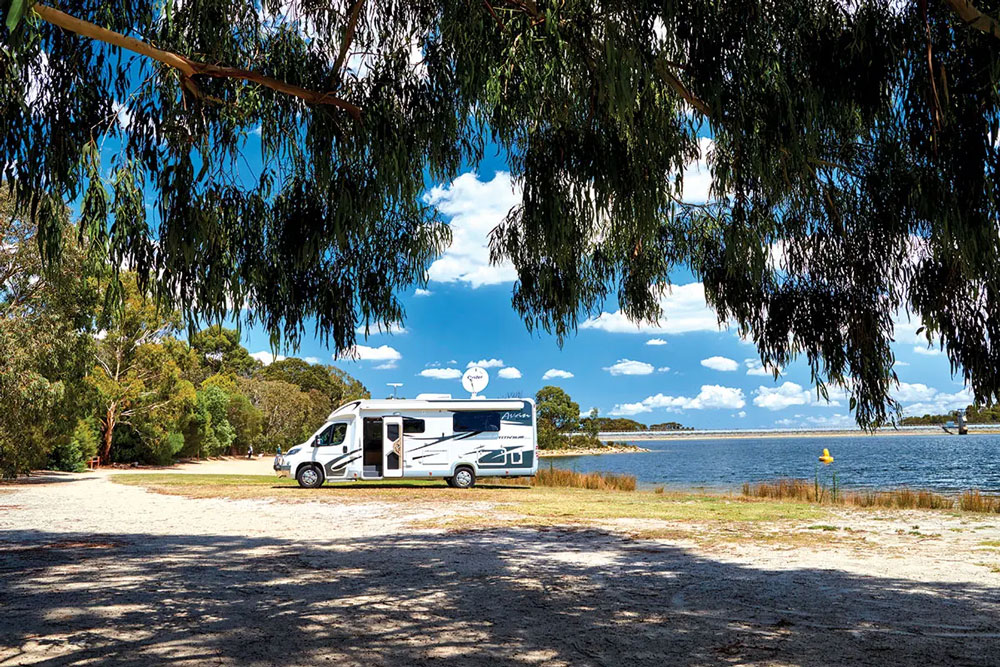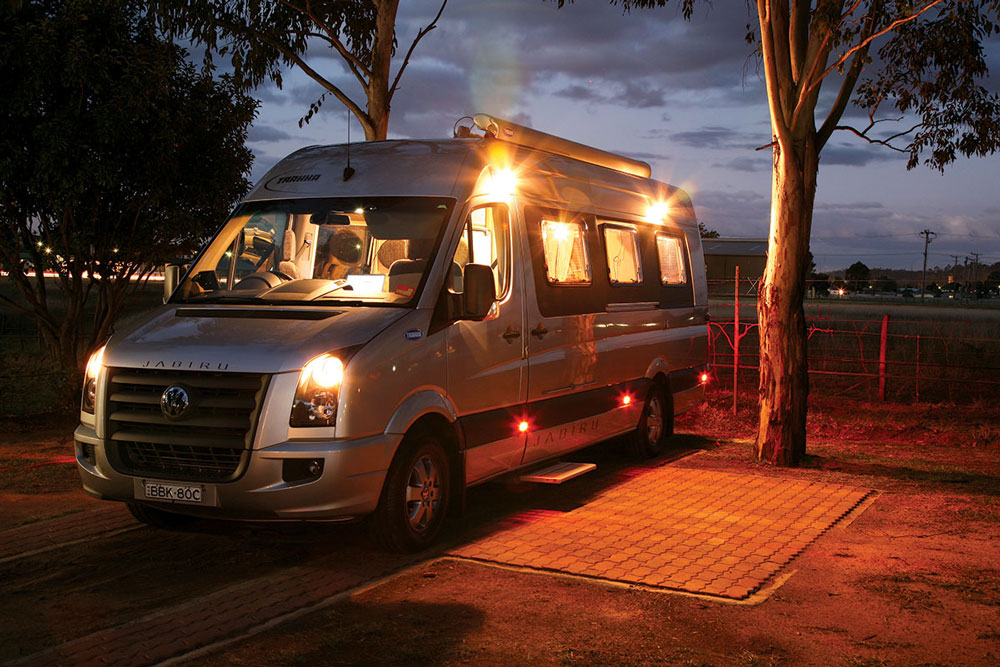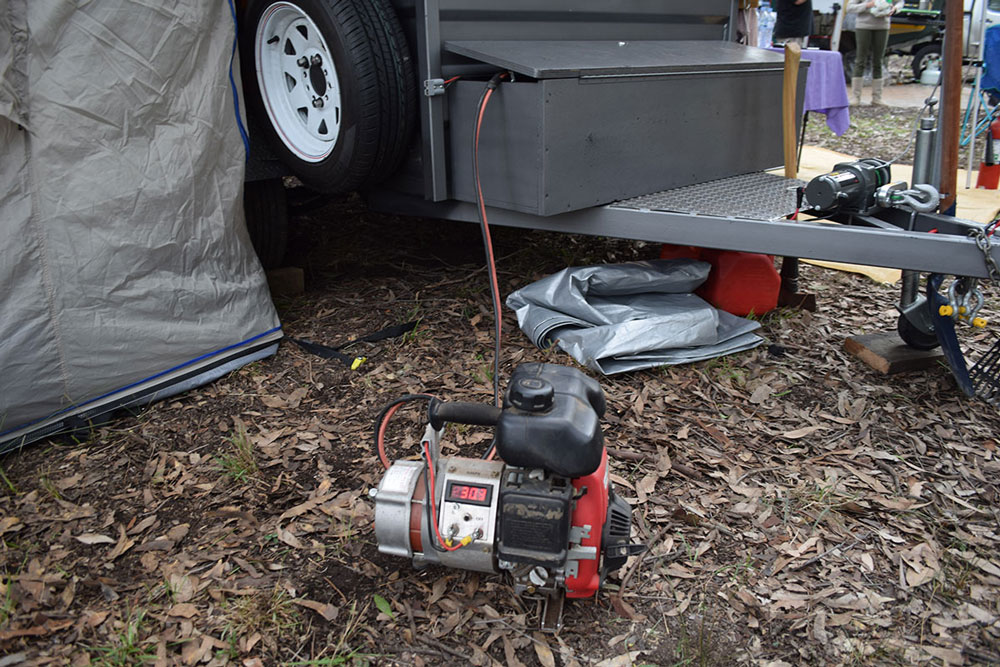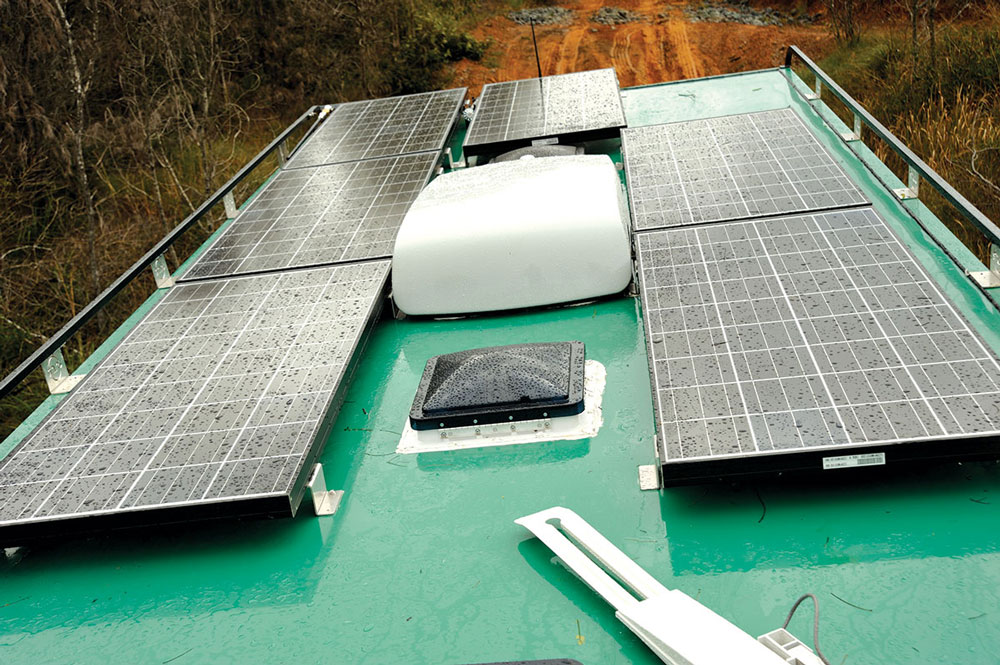
RV Power Sources: Choosing the Right Energy Solution
A Basic Guide for Understanding RV Power Sources
Learn About RV Power, Recharging, Solar Panels, and Generators and Enhance Your Travels with Expert Tips.
There are plenty of options available when choosing a suitable power supply for your RV—just make sure you consider the types of trips you want to take before making your choice.
Many underestimate the importance of a power supply when choosing a motorhome, but not being able to power all the essential gadgets we have come to rely on in our modern world can make or break a holiday. Several separate and related power sources may need to be considered when setting up your rig, potentially making it one of the most complicated parts of motorhome life.
Most of your RV’s appliances (lights, TV, etc) will run on 240V mains power or 12V battery power. Others, such as your cooktop or a water heater, will probably require gas, while a generator or space heater may use diesel.
All these power sources must be understood and considered to make your RV travelling experience as enjoyable as possible. Without understanding your options, you may make a misguided and regrettable decision when choosing a power system for your pride and joy.
While there are many variables to consider when it comes to power supply, above all, it’s a good idea to learn when and where you can access 240V power if needed, how you’ll power your 12V batteries, and where and how you will source and carry your additional gas or diesel fuels.
Power Sources

240 Volt
No matter what sort of RV you have (entry-level, offroader or top-of-the-line, etc.), it will be built to operate on 240V mains power. This is the same power your house runs on and available in caravan parks.
When hooked up to mains power, you won’t deplete your onboard power source (12V battery power). You can run any appliances within your RV—even high-draw items such as coffee machines or hairdryers—without issue.
12 Volt
When heading out to remote locations without caravan parks and mains power, you must rely on your 12V battery setup. This will differ between RVs and the options chosen at purchase or build. Travellers have different needs, which vary wildly, making your battery choice personal.
Batteries are power storage devices that, when correctly charged (more on below), can power a range of modern small appliances for limited periods—including items such as lights, TVs, and radios but excluding high-draw items such as kettles and toasters.
It goes without saying that once the appliances have used up all the stored power within the batteries, they’re due for a recharge.
Gas
Despite the recent introduction of gas-free motorhomes and their growing popularity, most modern RVs use at least one (if not more) gas appliance. These include internal gas cooktops, external gas barbecues, and gas space heaters.
If your rig has gas appliances, you must carry one or more gas cylinders — depending on your needs. These are the same cylinders you would use for your barbecue at home, so they’re easily swapped or refilled when required.
Diesel
Diesel appliances are less common than gas appliances; however, you may run a diesel generator to supplement your power sources or even a diesel space heater to keep your RV warm.
You must source and carry diesel on your trips if your rig has diesel appliances. Diesel is usually carried in dedicated jerry cans outside the vehicle.
Petrol
If your tow vehicle’s engine runs on unleaded petrol, you must consider fuel requirements during every trip. If you don’t have a long-range fuel tank or you’re doing long stretches in remote areas, you’ll need to carry fuel with you to ensure you don’t run out and become stranded.
Recharging

The central element of any RV power system is the battery, and all other energy management equipment—such as solar panels or battery chargers—should work closely with it. Finding effective and efficient ways to charge your motorhome’s 12V batteries is vital. Read on for our tips.
Battery Charger
The most obvious method of charging your 12V batteries is a battery charger. A charger reverses the chemical reaction within a battery when an appliance draws power from it, charging it instead of depleting it.
Remember that most chargers require 240V mains power to work, and so are not very useful when travelling away from civilisation for long periods.
Solar Panels

Solar panels convert sunlight to electrical energy, which is then managed by a solar regulator and stored in a deep-cycle battery. 12V DC electrical appliances can be run from the battery, while an inverter is needed to power 240V AC appliances.
Using solar energy to recharge your 12V batteries while away from home is a popular option. Solar power creates no noise or fumes, is environmentally sustainable, and has no costs after the initial setup.
However, a well-managed solar system is more than enough to power most standard 12V usage, and this is a crucial aspect to consider. The efficiency of your panels relies on weather and often the position of your motorhome (for roof-mounted panels). This means you must be parked in direct sunlight to take advantage of the sun’s free power, which may or may not be where you want to camp for the night.
Vehicle Alternator
While underway, RV batteries (12V) can be set up to charge from the vehicle’s alternator. Unfortunately, due to the length of the cable required for this setup, voltage drop can be an issue in some cases. The method is, therefore, not 100 percent reliable. However, there are after-market devices—such as boosters—available that minimise voltage drop.
Generators
A portable generator creates electricity from a gas-powered engine, turning an on-board alternator to generate electrical power. Power outlets on the unit work just like the power points in your home, so there aren’t many limits to what you can run using your generator.
Despite being noisy and expensive, generators are a reliable way to meet your power needs. Because they are so loud and expensive, they are generally considered a last-resort option, but they can certainly be a helpful addition to any power setup.
The cost of a generator depends mainly on its size. Unlike solar panels, generators require ongoing running costs after the initial purchase. These ongoing costs include fuel and servicing.
It’s also important to note that generators are banned in many national parks and campsites due to their impact on other campers.
QUICK TIP: Always be mindful of the availability of charge. In the same way that you keep note of distances between petrol stations, pay attention to how far the next 240V mains power is or whether the sunshine will be sufficient on cloudy days.
The Next Step
Are you ready to experience the freedom of the open road? Find your dream van online at OnlyVans.com.au! We have great deals on caravans for sale including used caravans and caravans from private sellers. You can also find motorhomes for sale, camper trailers, and pop top caravans. No matter how you like to travel, we've got you covered.
This article was written by the Editorial Team at TradeRVs.com.au, now powered by OnlyVans.com.au.
Found your perfect purchase? Let’s make financing just as easy!
Work with Australia’s best-reviewed finance broker for a great deal and a stress-free experience. With 2,500+ glowing Google reviews, you can trust you're in good hands! See what our happy customers say in Credit One reviews, or jump right in and crunch the numbers with our handy loan repayment calculator. Your ideal financing solution is just a few clicks away!